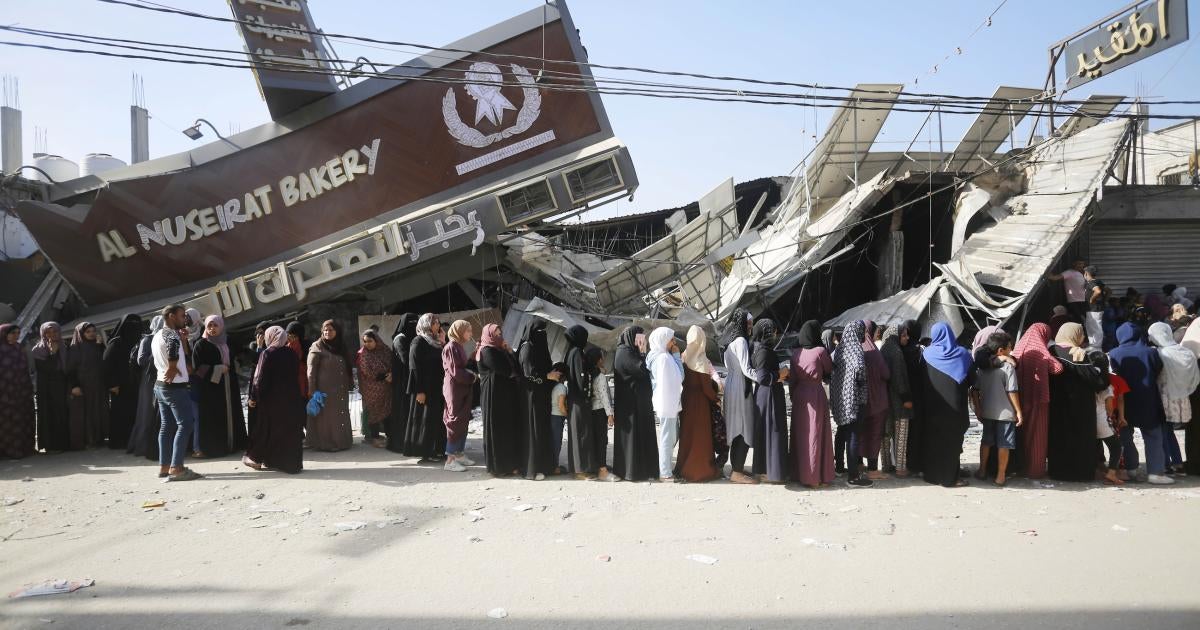In a stark warning to the international community, Palestinian officials have accused Israel of deliberately using starvation as a weapon of war in Gaza, particularly in the northern region where food aid has been restricted to just 6% of daily requirements. The alarming situation was detailed in a diplomatic communication to Nigerian President Bola Tinubu from Ambassador Abdullah M. Abu Shawesh of the Embassy of the State of Palestine.
The crisis has reached catastrophic proportions, with Palestinian authorities reporting that 43,603 people have been killed and 102,929 injured in Gaza over the past 405 days of conflict. The majority of these casualties are women and children, painting a grim picture of the humanitarian situation in the region. Among the casualties are 188 journalists who have lost their lives in what Palestinian officials characterize as genocide and ethnic cleansing perpetrated by Israel and the United States.
The situation in North Gaza has become particularly dire, with only 30 trucks of aid being permitted to enter daily, falling drastically short of meeting the region’s basic needs. Human Rights Watch has condemned Israel’s actions, categorizing the deliberate blockade of food, water, and fuel as a war crime. The organization points to public statements by Israeli officials explicitly expressing their intent to deprive Gazans of essential resources.
The crisis extends beyond Gaza into the occupied West Bank, including East Jerusalem, where Palestinian authorities report 811 deaths and 5,755 injuries as of November 9. The region has seen the establishment of 13,585 permanent and temporary military checkpoints, severely restricting movement and access to basic services.
The detention situation has reached alarming levels, with Palestinian officials reporting 11,600 detainees in the occupied West Bank and East Jerusalem. This includes 430 women, 760 children, and 132 journalists, with 85 journalists remaining in detention. Administrative detention orders have affected over 10,000 individuals. The situation is compounded by reports of human rights violations during arrests, including physical abuse, property destruction, and theft of personal belongings.
The conditions in detention facilities have raised serious concerns. Reports indicate that an estimated 5,000 additional detainees from Gaza are being held without any information about their whereabouts or condition. Tragically, 41 Palestinian detainees have reportedly died due to ill-treatment and severe beatings. In the Negev and Ofer prisons, detainees face particularly challenging conditions, with reports of scabies outbreaks and allegations of torture, verbal abuse, and medical neglect.
The humanitarian situation in North Gaza has reached a critical point, with residents facing what Ambassador Shawesh describes as an “immobilizing siege.” Civilians are caught in a desperate situation, facing continuous bombardment while lacking access to basic necessities such as food, water, and medical supplies. The ambassador reports that attempts to flee in search of these essentials often result in civilian deaths from Israeli drone strikes.
Joyce Msuya, Acting Under-Secretary-General for Humanitarian Affairs, has called for immediate international action. She emphasized the urgent need for member states to utilize diplomatic and economic pressure to prevent violations of international humanitarian law, ensure responsible arms transfers, and combat impunity. Msuya specifically urged the Security Council to exercise its powers under the UN Charter to enforce compliance with international law and implement its resolutions.
Looking ahead, Palestinian officials express grave concerns about the future of the occupied West Bank. They warn that Israel may attempt to extend its sovereignty over the region, potentially with support from the upcoming US administration. Such a move, according to Palestinian authorities, would effectively end any prospects for the peace process and a two-state solution.
The Palestinian government has emphasized that mere condemnations are insufficient to address the crisis. They are calling for concrete collective action to end what they describe as prolonged Israeli aggression in Gaza. The situation has sparked intense debate in the international community about the responsibilities of nations to intervene in humanitarian crises and enforce international law.
As the crisis continues to unfold, the international community faces mounting pressure to take decisive action. The stark statistics and detailed reports from Palestinian officials and human rights organizations present a clear picture of a humanitarian emergency that requires immediate attention and intervention from world leaders and international bodies.
The ongoing situation in Gaza and the West Bank represents not only a regional crisis but a test of the international community’s commitment to humanitarian principles and international law. As casualties continue to mount and basic necessities become increasingly scarce, the urgency for meaningful international intervention grows with each passing day.



